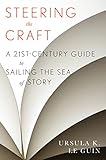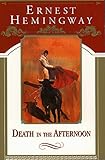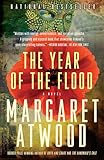On December 23, 2019, I wrote these sentences in my private journal: “Shore up your strength for 2020. You’re going to need it in ways you can’t even imagine right now.” I had recently gotten engaged, was in the process of packing up my life after almost six years in India to move back to the US, and had two book releases coming up. With such imminent beginnings, I had in mind a hopeful sort of rebirth or regeneration that comes from new possibilities and experiences. 2020, of course, had plans of its own for the world.
*
For almost a decade now, I’ve set myself an annual intention. This is a single word that I internalize throughout the year so that, beyond the particular goals I’m hoping to accomplish, it infuses everything I do as a theme, mood, and emotion. What started as a private journal practice of meditating on that intention word to understand its many meanings became, from 2016-on, a series of reflections shared on social media with friends and readers. For 2020, given what I had imagined the year would entail, my word-of-the-year choice had been “renewal.”
Confined to a mostly indoor existence, much of the renewal I had expected would come from going to new places and spending time with new people did not happen. My return to the US was a precarious two-day journey by air and road. My wedding was a 10-minute exchange of vows with my now-husband with our dog, a judge, and a hired photographer for company. My book release events were two 30-minute Zoom events attended by the few reader and writer friends who persevered despite technical glitches. Still, I am grateful to be among the fortunate ones because 2020 has proved to be a manifestation of Yhprum’s Law—“Things that should not work, work nevertheless.”
*
Years ago, while traveling in Spain for work, a local tourist guide cornered me in the hotel bar after a long day and offered to take me to a bullfight. I scrunched my face, shook my head from side to side, and squeezed my shoulders up to my ears. He stroked those shoulders, saying there were life lessons to be learned from what some consider an inhumane spectacle. I scoffed in return. Then he told me this fascinating bit about how, in the thick of battle, the bull gathers his strength in one particular spot of the ring or arena. This process or place is called “querencia.” It’s where the bull becomes his most dangerous because he loses his fear and regains his power. This is why matadors try to keep the bulls moving—they don’t want the bulls to find that place of refuge or safety or stay in it too long. Hemingway has a more chilling description of this in Death in the Afternoon, if you care to look it up.
I now believe that 2020, for me, has been about the querencia kind of renewal. It has been about sheltering in a place of refuge to gather strength, create new rituals, and regain power. And, given these times of incalculable losses and immeasurable griefs, this renewal period is, in itself, no mean effort and no small privilege.
*
Somehow, despite everything, I have managed to do my usual amount of reading and a whole lot more writing this year. Much of my reading was for book reviews or the Desi Books podcast that I started early in the year to spotlight new books by writers of South Asian origin. Most of my writing was part of the promotion cycle for my own books. As always, however, the books that have rewired some of my inner circuitry are ones that I’ve revisited.
A reread is always a different kind of immersion than a first-read. Rediscovering familiar aspects of a book is a welcome comfort because both anticipation and participation are more heightened than in previous reading experience(s). Finding new meanings either missed the first time or forgotten since then is like being blessed with unexpected gifts. Gaining a deeper appreciation for the writer’s literary virtuosity is like taking a free creative writing masterclass. And while it wasn’t easy this particular year to burrow back into these old favorites, each one taught me something new about my renewal intention.
*
Jazz by Toni Morrison: The first time I read this book for a writing workshop over a decade ago, it frustrated me. There was so much going on with the switching points of view, the mysterious narrator, the retellings of certain events, the many digressions, the multiple climaxes, and more. Still, Morrison’s beautifully rhythmic prose and hauntingly precise language have always had me in thrall. This year, I taught an eight-week fiction workshop with Jazz as one of two main texts. The workshop participants who came to the book for the first time were likely as frustrated as I had once been. But those who persevered and read the entire novel were transformed at the end as happens to readers of any Morrison novel.
This time around, it was even more wrenching to read about racial violence in the wake of George Floyd’s murder and the aftermath of protests and more violence across the country. The other theme that resonated deeply with this reread was that of migration. Almost all the main characters migrate to New York City from various parts of the country. They’re looking to escape troubled pasts and start fresh with healed identities. In describing how the rosy visions of their new beginnings quickly turn into grimy realities, Morrison hits the high notes and the low ones with a punchy percussiveness.
In the foreword, she writes: “Rather than be about those characteristics [invention, improvisation, originality, change], the novel would seek to become them.” Re-experiencing Morrison’s singular accomplishment with Jazz, I was reminded of how, even in nature, transformation is not a beautiful process. A seed has to break its skin and split open to be able to sprout. Inside its silky cocoon or shiny chrysalis, the caterpillar has to disintegrate into an amorphous soup-like mess that then fuels the cell growth for its metamorphosis into a butterfly. Always, something has to die for something to be born in a renewal process. Like the seed yet to germinate, we all carry the potential to sprout into something more fruitful. Like the caterpillar yet to transform, we’re all walking around with tiny wings tucked inside our bodies. It takes a lot of doing, being, and waiting to become more of our real selves. Rereading Jazz this year has reminded me of all this.
*
 Steering the Craft (2015 edition) by Ursula K. Le Guin: This is the second text I used for my writing workshop. As a craft book, it showcases Le Guin’s many virtues as a writer, mentor, and teacher. Her generous wisdom is delivered with wry humor, timeless examples, and practical exercises. On every page, her voice shimmers and flows with a literary passion that is immediately infectious and inspiring. Le Guin was a legend during her own time and had influenced at least three generations: her own and the two that came after. Yet, as Karen Joy Fowler has written in her foreword to Le Guin’s posthumously-published essay collection, No Time to Spare: “Le Guin is not the sort of sage who demands agreement and obeisance.”
Steering the Craft (2015 edition) by Ursula K. Le Guin: This is the second text I used for my writing workshop. As a craft book, it showcases Le Guin’s many virtues as a writer, mentor, and teacher. Her generous wisdom is delivered with wry humor, timeless examples, and practical exercises. On every page, her voice shimmers and flows with a literary passion that is immediately infectious and inspiring. Le Guin was a legend during her own time and had influenced at least three generations: her own and the two that came after. Yet, as Karen Joy Fowler has written in her foreword to Le Guin’s posthumously-published essay collection, No Time to Spare: “Le Guin is not the sort of sage who demands agreement and obeisance.”
Revisiting this craft book reminded me of her literary activism and how she always believed in the abundant and lasting power of storytelling to bring about real, tangible change. All her fictional utopias and dystopias have been about imagining different possible worlds. For many of us, this year has also been about holding fast to other imagined possibilities.
Here’s one more bit that has stayed with me after this rereading: “I’m not going to discuss writing as self-expression, as therapy, or as a spiritual adventure. It can be these things, but first of all—and in the end, too—it is an art, a craft, a making. And that is the joy of it. To make something well is to give yourself to it, to seek wholeness, to follow spirit. To learn to make something well can take your whole life. It’s worth it.”
Writer friends have shared how 2020 has been a highly distracting year at best and a harrowingly tragic one at worst. Many of us are not religious and cannot turn to some higher force for solace. For those of us who have been able to do so, surrendering ourselves to the act and process of creating art has been a miracle in itself. Doing work like this does not keep a deadly virus at bay to save precious lives. But perhaps it has saved the one life most precious to us: our own. One day, if we’re patient and focused enough in cultivating our little gardens, the future might present itself to us as a whole new country. The real dawn might be the one breaking from within.
*
 The Inheritance of Loss by Kiran Desai: The main action of this 2006 Booker-winning novel is set during the 1986-1988 Gorkhaland movement in Kalimpong, which is part of the Darjeeling district and located on the banks of the Teesta River in Northeast India. However, the narrative reaches back into colonial times, extends to present-day New York, and jumps and cuts back and forth across both time and space boundaries.
The Inheritance of Loss by Kiran Desai: The main action of this 2006 Booker-winning novel is set during the 1986-1988 Gorkhaland movement in Kalimpong, which is part of the Darjeeling district and located on the banks of the Teesta River in Northeast India. However, the narrative reaches back into colonial times, extends to present-day New York, and jumps and cuts back and forth across both time and space boundaries.
Desai tackles many themes: post-colonialism, living between the past and the present, living between cultures and nationalities, the impact of westernization on a culture in search of its own identity, the loss of identity and how that sense of loss travels through generations, the displacement and assimilation challenges of immigrants, the vast differences across divides created by religions and castes and class, first love, human dignity, etc. These are not new preoccupations for writers of Indian origin. But Desai differs from, say, V. S. Naipaul’s “colonial neuroses” (as one of Desai’s characters labels Naipaul’s writing) or Jhumpa Lahiri’s nuanced cultural assimilation stories of Indian Americans. Instead, she shows a hard, clear-eyed skepticism about the ability of the once-colonized to shake off their long-lasting cultural heritage and legacies as they try to recreate their identities or emigrate to new countries and assimilate new ones.
For all these various sadnesses, the novel isn’t gloomy. Desai often weaves irony and satire into the tragic. Her evocative, rhythmic prose has a living, malleable energy of its own so that, even when she’s describing something ugly or violent, we are not left ravaged but richer.
I recall some interviews with Desai where she described her writing process as that of creating an entire haystack before she can find the needles within. She had to pare this novel down from a 1500-page draft. Recalling this has been a bit reassuring for me as I’ve felt like I’ve been building haystacks with all the book promotion-related writing—whether interviews or essays—I’ve been doing. There’s enough material there to make for an entire third book if I can but find the needles therein.
In a year like this, more than ever before, I also needed to be reminded of what this story’s assorted cast of characters collectively represents: immigration as a creative act in itself; a nation trying to pull itself together with humanity, dignity, meaning, and pride; and how losing something to gain another isn’t always a bad thing.
*
All this 2020 reading and writing has helped me understand beginnings and endings and renewal and loss differently. I am ending the year with Margaret Atwood’s dystopian MaddAddam trilogy because of its global pandemic plot point. The second book in the trilogy, The Year of the Flood, includes this statement: “What am I living for and what am I dying for are the same question.” I mull over these questions of a raison d’être and a raison de mourir, as the French would say. I wonder if it is possible to give the same response, unequivocally and unambiguously, to them. I suppose that, if such a single response to both questions is possible, it could well be my existential purpose. So I choose “purpose” as my 2021 intention, meditation, and word-of-the-year. And, dear reader, may that sense of purpose be instilled in all that we do in the coming year: the books we read, the lives we lead, and the world that we become.
More from A Year in Reading 2020
Don’t miss: A Year in Reading 2019, 2018, 2017, 2016, 2015, 2014, 2013, 2012, 2011, 2010, 2009, 2008, 2007, 2006, 2005











